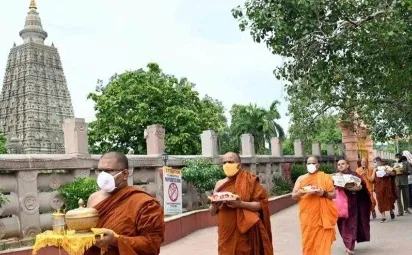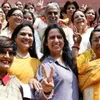South and Southeast Asia Embrace Cultural Diversity: Insights from Pew Research

A recent report by the Pew Research Center sheds light on the attitudes towards cultural diversity in South and Southeast Asia, offering intriguing insights into the perspectives of people in Cambodia, Indonesia, Malaysia, Singapore, Sri Lanka, and Thailand. Released on September 12, the report, titled “Buddhism, Islam, and Religious Pluralism in South and Southeast Asia,” presents a comprehensive view of the region’s religious dynamics and the role they play in shaping society.
One of the standout findings of the Pew survey is the widespread acceptance of people from different religions across all six countries. The majority of respondents in these nations expressed openness and acceptance towards individuals of diverse faiths. However, intriguing variations emerged when examining specific issues and religious expressions.
In terms of viewing diversity as a positive force in their respective countries, Malaysia emerged as the leader, with a remarkable 62 percent of respondents stating that diversity made their country a better place to live. Sri Lanka closely followed, with 62 percent sharing this sentiment. On the other end of the spectrum, Cambodia and Thailand had the fewest people who believed diversity improved their country, with only 31 percent and 19 percent, respectively, holding this view.
Singapore, known for its cultural and religious diversity, stood out with the highest number of people affirming the compatibility of various religions with their society. Almost nine out of ten respondents in Singapore expressed that Islam, Christianity, Hinduism, Chinese traditional religions, and Indigenous beliefs were all compatible with their society. While other countries generally held positive views about different religions, Cambodia appeared as an outlier, with lower compatibility percentages for Islam, Christianity, and Hinduism.
Interestingly, the survey also explored attitudes towards religious conversion. Among the Buddhist-majority countries, Cambodia had the lowest acceptance of conversion away from Buddhism, with 92 percent considering it unacceptable. In contrast, Singaporeans displayed the most tolerant attitude, with only 36 percent of Buddhists opposing conversion away from their faith.
Further analysis revealed that younger Buddhists in Cambodia, Singapore, Sri Lanka, and Thailand were more accepting of religious conversion from their religion than their older counterparts. This generational shift in acceptance suggests evolving attitudes towards religious change.
Sri Lankan Buddhists distinguished themselves for their respect for key figures from various religions. The survey found that Sri Lankan Buddhists offer prayers or respect to the Buddha, Allah, Jesus Christ, and Ganesh in significant numbers, reflecting their openness and respect for diverse religious figures. This shared reverence is a testament to the religious harmony and pluralism in Sri Lanka.
Additionally, the survey provided valuable insights into the changing religious landscape of Singapore. Over the past four decades, the religious composition of Singapore has evolved significantly. Buddhism’s share of the population grew from 27 percent in 1980 to over 40 percent by 2000 but has since declined to 31 percent. Chinese traditional beliefs/Taoism, once a dominant force, plummeted from 30 percent in 1980 to just 9 percent in 2020. Meanwhile, the number of people identifying as religiously unaffiliated or Christian steadily increased during this period.
Today, Singapore’s religious landscape is diverse, with 31 percent identifying as Buddhist, 20 percent as religiously unaffiliated, 19 percent as Christian, and 15 percent as Muslim. The remaining 15 percent encompasses Hindus, Sikhs, Taoists, and adherents of Chinese traditional religions.
The Pew Research Center’s report offers a comprehensive understanding of the attitudes towards cultural and religious diversity in South and Southeast Asia. While there are variations among these nations, the overall trend is one of acceptance and openness, highlighting the rich tapestry of cultures and faiths that coexist in the region. As Bhutan continues to celebrate its own unique cultural and religious diversity, it can draw inspiration from the positive attitudes revealed in this survey, fostering harmony and mutual respect among its people.
In Vietnam, The 2013 Constitution affirms that "everyone has the right to freedom of belief and religion, and has the right to follow any religion or to follow no religion. All religions are equal before law. The State respects and protects the right to freedom of belief and religion; no one may violate the freedom of belief and religion nor may anyone take advantage of a belief and religion in order to violate the law.
As of the end of 2020, there were 50,703 works dedicated to religion or belief nationwide, of which 15,205 were rated or included in the lists of relic sites by provincial People’s Committees, and 29,801 religious facilities.
The Vietnam Buddhist Sangha (VBS) alone had 18,544 monasteries, including 15,871 of Mahayana Buddhism and 462 pagodas of Khmer Theravada Buddhism.
Tags:





